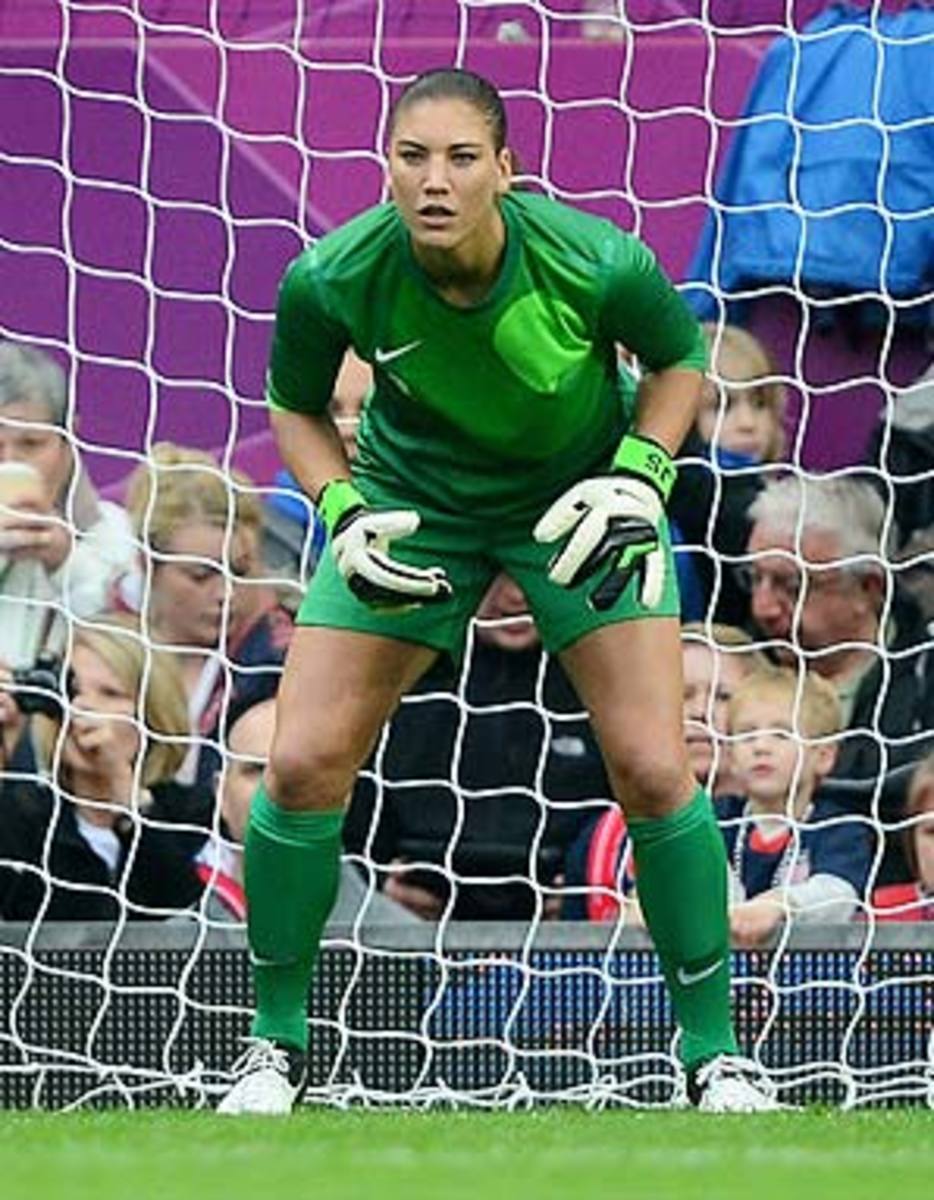Retooled defense has U.S. two steps from its third straight gold
NEWCASTLE, England -- When the U.S. women's soccer team gave up two goals in the first 14 minutes of its Olympic opener against France, it was easy to think the sky was falling for the U.S. defense. But a funny thing happened after that nightmare start: The Americans came back to win 4-2 and have now gone a U.S. Olympic-record 346 minutes without allowing another goal after their 2-0 victory over New Zealand in Friday's Olympic quarterfinals.
With the attack doing everything but finishing on several occasions against the Kiwis, the U.S. defenders were under pressure to keep things tight, and that's exactly what they did. New Zealand never had any real scoring chances, and most of their shots were hopeful blasts from distance that didn't trouble goalkeeper Hope Solo.
"I have the utmost confidence in our defense," said forward Abby Wambach, who scored her fourth Olympic goal in as many games and the 142nd of her international career Friday. "I think they've proven over the last three games that they're one of the best defenses in the world, regardless of how many goals they let in against France. We learned some tough lessons that day, and it's been shutouts since then. I'm proud of them."
Although the U.S. Olympic squad is virtually the same one from last year's World Cup, the back five has had to deal with several changes in the past year. Ali Krieger, the starting right back, suffered a serious knee injury in January, forcing Amy LePeilbet to move, Philipp Lahm-style, from left back to right back. Meanwhile, Kelley O'Hara was converted from forward to starting left back, and the team even welcomed a new assistant coach in charge of the defense, Swede Tony Gustafsson.
The constants have been in the middle, though, in center backs Christie Rampone and Rachel Buehler and goalkeeper Solo. Coach Pia Sundhage said that even though reserve center back Becky Sauerbrunn is certainly capable of playing at this level, the coach prefers to go with a consistent central pairing.
"We really feel like a unit back there," said Buehler on Friday. "We've had a lot of minutes together. The more comfortable you are with each other, you can read each other better, cover for each other and know what our tendencies and strengths are. We've got a good rhythm with that."
What's more, Solo noted, defense isn't limited just to defenders.
"We've been focusing so much on our back-line defense, but really it's been the team defense," she said. "You can see Abby [Wambach] and Alex [Morgan] pressuring the ball up top. We're asking them to work harder defensively, and our central midfielders, Carli [Lloyd] and [Lauren] Cheney, are picking up second balls and trying to double back."
While LePeilbet had some problems in the early games of last year's World Cup, she improved as the tournament went on and has been solid at right back in the Olympics. As for O'Hara's switch from forward to left back, the grand experiment appears to be working, though not without a painful adjustment period earlier in the year.
"I now feel comfortable, and I've been enjoying playing back there," said O'Hara. "If you'd asked me seven months ago, I would have been like, 'Do not play me in a game back there. I'm not going to do well!' It's a completely different position in terms of where you're standing, how you're looking at players and your responsibility and risk-taking."
Solo made a worthwhile point when she said it was hard to know if the U.S. defense had improved too much in the past three games because "we haven't really been tested" -- Colombia, North Korea and New Zealand aren't exactly elite teams -- but it's still hard to argue with zero goals allowed in 346 minutes. It's a point of pride for a defensive unit that has adjusted to the arrival of a new defensive coordinator, so to speak, in assistant coach Gustafsson.
"He's been around well-organized Swedish teams," says Sundhage, who in April hired Gustafsson, a former men's head coach at Sweden's Hammarby and Norway's Kongsvinger. He replaced former U.S. assistant Erica Walsh, who Sundhage said was "phenomenal" in her four years on staff but wasn't able to continue "for a couple reasons" that the head coach didn't specify.
"He's kind of black-and-white, straight to the point," Solo said of Gustafsson. "We know exactly what he wants out of us. There's no gray area. We've had some great defensive coaches, and there's been a lot of input by the players, a lot of 'Well, I was thinking this, but maybe I should have done that.' Now it's just black-and-white. This is your job. This is what you need to do. Everybody knows each other's roles, and then it's easier to organize."
"That's what everybody respects about [Gustafsson]," Solo added. "If he made a wrong decision, he'll take responsibility for that. You feel like a unit out there because everybody is covering one another."
A unit. That's the dominant theme of the U.S. defense these days. No matter what you may think about Solo's Twitter posts complaining about TV analyst criticism of Buehler, just about everyone would agree that she was attempting to stick up for her teammate.
"I think it's great that Hope is willing to defend her teammates, and there's definitely a sense of unity that we have back there," Buehler said. "I'm not really that into Twitter, but we all get criticized in the media, and that's part of being a professional athlete as well. It's great that she was defending her teammates, but we're just trying to stay focused on our next game and on our team as a unit."
At the final whistle against New Zealand, that back-line unit came together in a group hug. Another game, another clean sheet. The U.S. is two steps from its third straight Olympic gold medal.






